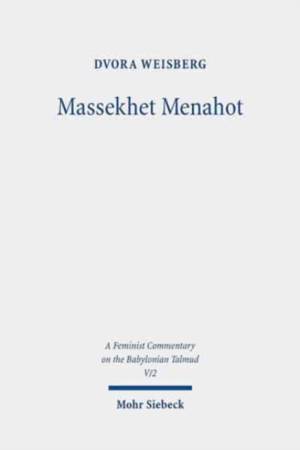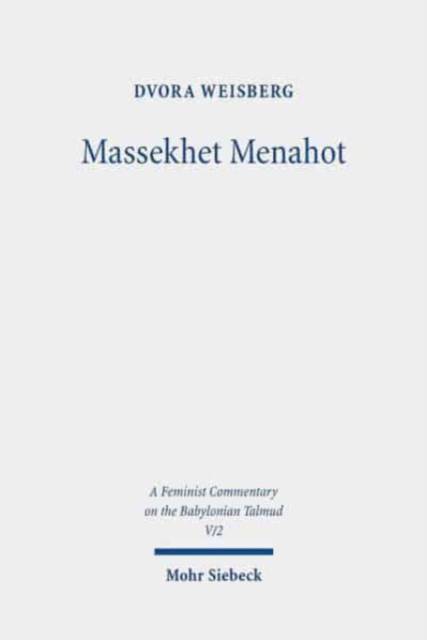
- Afhalen na 1 uur in een winkel met voorraad
- Gratis thuislevering in België vanaf € 30
- Ruim aanbod met 7 miljoen producten
- Afhalen na 1 uur in een winkel met voorraad
- Gratis thuislevering in België vanaf € 30
- Ruim aanbod met 7 miljoen producten
Zoeken
€ 135,95
+ 271 punten
Omschrijving
Tractate Menahkot in the Babylonian Talmud considers the proper composition, formation, and presentation of offerings of grain and flour brought to the Jerusalem Temple. Redacted centuries after the destruction of the Temple and the cessation of the sacrificial cult, the tractate focuses on the work of the priests and the centrality of intent in validating or invalidating offerings. There is minimal consideration of the role or experience of the men and women who brought offerings. The tractate also contains a detailed discussion of major ritual objects: Torah scrolls, mezuzah, tsitsit, and tefillin. Dvora Weisberg's commentary focuses attention on the tractate's treatment of women and gender issues, considering the ways that the Talmud presents women's engagement with the sacrificial system and with key religious symbols.
Specificaties
Betrokkenen
- Auteur(s):
- Uitgeverij:
Inhoud
- Aantal bladzijden:
- 328
- Taal:
- Engels
- Reeks:
Eigenschappen
- Productcode (EAN):
- 9783161583322
- Verschijningsdatum:
- 1/02/2020
- Uitvoering:
- Hardcover
- Formaat:
- Genaaid
- Afmetingen:
- 157 mm x 231 mm
- Gewicht:
- 657 g

Alleen bij Standaard Boekhandel
+ 271 punten op je klantenkaart van Standaard Boekhandel
Beoordelingen
We publiceren alleen reviews die voldoen aan de voorwaarden voor reviews. Bekijk onze voorwaarden voor reviews.







